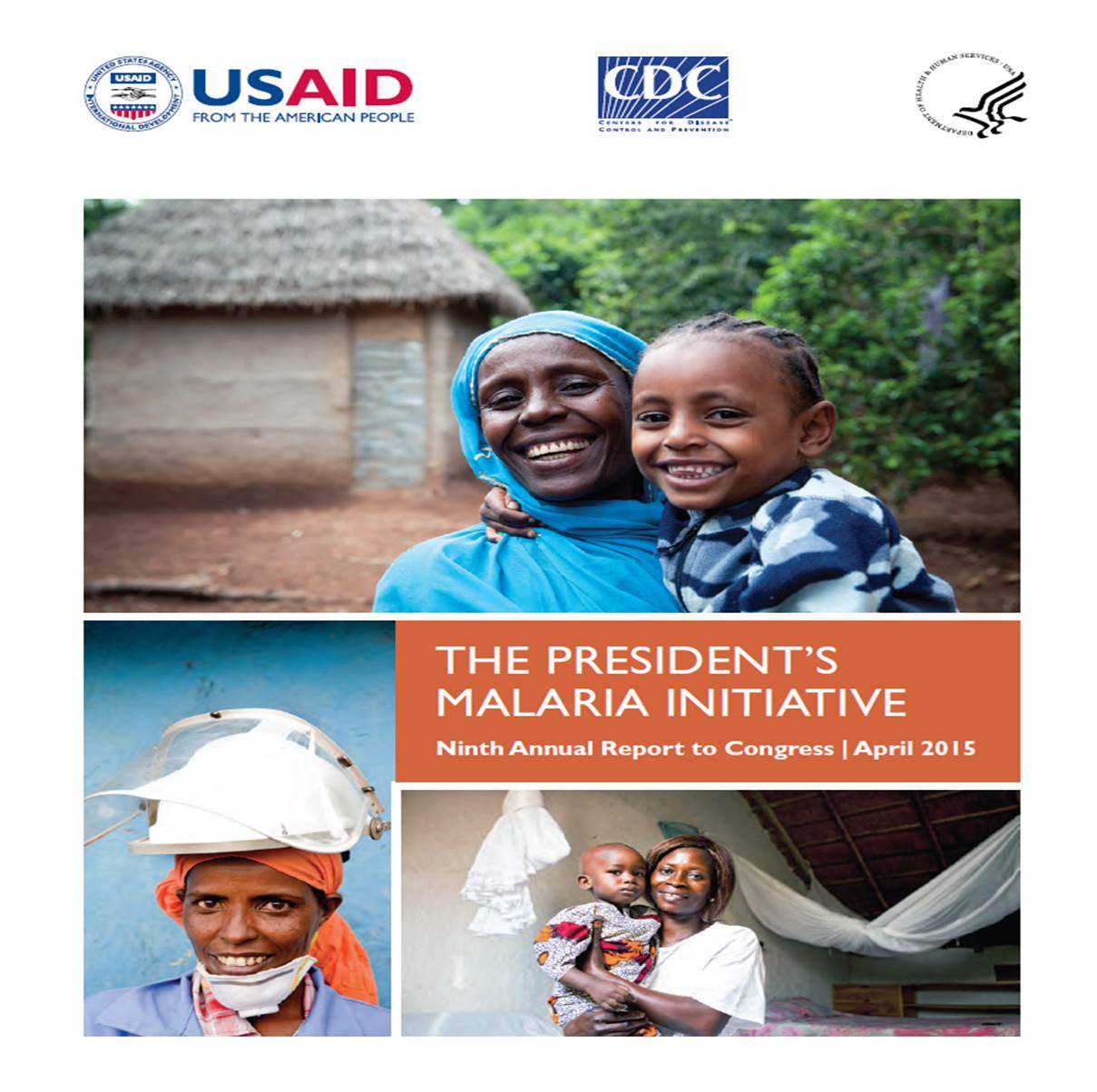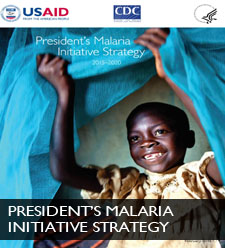Ethiopia
- History
- Our Work
- Foreign Assistance Data
- Dollars to Results
- PARTNERS
- Newsroom
- Fact Sheets
- WORK WITH US
The President’s Malaria Initiative (PMI) was launched in June 2005 as a five-year, $1.2 billion initiative to rapidly expand malaria prevention and treatment interventions and reduces malaria-related mortality by 70 percent in 15 high-burden countries in sub-Saharan Africa. In 2007, Ethiopia became a PMI focus country.
PMI aims to reduce malaria morbidity and mortality by 70 percent by 2015. Under the PMI strategy for 2015-2020, the U.S. Government’s goal is to work with PMI-supported countries and partners to further reduce malaria deaths and substantially decrease malaria morbidity, toward the long-term goal of elimination. Our support for malaria prevention and control is primarily focused on the Oromia Regional State, the largest of Ethiopia’s nine regional states encompassing a third of the country. Since 2011, PMI has also provided national level support by filling commodity gaps and supporting planning, training, and use of strategic information. In addition to strengthening national level malaria prevention and control efforts, PMI has also supported the Ministry of Health to roll out integrated community case management of fevers in target districts throughout the country. Malaria is one of the most important health issues in Ethiopia. Approximately 60 percent of Ethiopia’s population lives in malaria-endemic areas. In 2015, according to the Ministry of Health, malaria was one of top ten leading cause of morbidity in all ages and children under age five, accounting for 3.4 and 5.2 percent respectively.
All malaria activities under PMI are planned and implemented in close collaboration with the Ministry of Health and relevant regional health bureaus to reach its health development goal of 85 percent coverage of at-risk populations with proven preventive and therapeutic interventions. These include long-lasting insecticide nets, indoor residual spraying of households with insecticide, rapid diagnostic tests, Artemisinin-based combination treatment therapies, and complemented by malaria-focused social behavioral change communications and other health systems strengthening activities.
PMI contributes to the improvement of malaria diagnostics and quality assurance in Ethiopia. In addition, PMI collaborates with PEPFAR’s support to the Government of Ethiopia’s pharmaceutical and logistics management—enabling and tracking of anti-malaria drugs within the existing commodity supply chain system quality control.
Activities Include
PREVENTION
-
Indoor Residual Spraying for Malaria Control: Implement best practice, environmentally-compliant indoor residual spraying operations to reduce malaria transmission in selected malaria zones and districts of Oromia. Conduct comprehensive entomological surveillance to monitor the biological and physiological impact of indoor residual spraying on mosquitoes, monitor the status of mosquitoes susceptibility to the insecticides used for malaria control to inform decision making.
-
Sustaining Malaria Reduction Interventions in Ethiopia: Procure and distribute insecticide nets, anti-malarial drugs, and rapid diagnostic tests to health facilities and households nationally.
CASE MANAGEMENT
-
Integrated Family Health Program: Provide support in case management supervision and epidemic surveillance at the community level.
-
Malaria Laboratory Diagnosis and Monitoring: Strengthen malaria laboratory diagnosis. Implement operational research to assess the therapeutic efficacy of and adherence to anti-malarial drugs.
-
Malaria Rapid Diagnostic Tests and Laboratory Equipment: Increase capacity to implement quality malaria laboratory services by provision of malaria rapid diagnostic tests, laboratory equipment and reagents.
-
Systems for Improved Access to Pharmaceuticals and Services: Provide technical, strategic, managerial and operational support to implement and strengthen anti-malarial drug management activities in Oromia Region.
MONITORING AND EVALUATION
- Monitoring and Evaluation Activities for Malaria Prevention and Control in Ethiopia: Ensure coordination of monitoring and evaluation and malaria surveillance activities. Provide technical assistance in revising national malaria strategy.
OPERATIONAL RESEARCH
-
Malaria Operational Research: Undertake operational research studies to support PMI program activities in Ethiopia.
Featured Articles
Improving Malarial Microscopy through Quality Assurance [Transforming Lives]
Enriching Communication: The Malaria Research Network of Ethiopia [Transforming Lives]
PMI Stories from the Field: Ethiopia
Videos
Communication for Change [5:47]
Dr. Shah’s Message to African Leadership for Child Survival [4:34]
Africa Indoor Residual Spraying in Ethiopia [4:25]
Related Resources
PMI Monitoring & Evaluation and Operational Research Fact Sheet [PDF, 99KB]
PMI Operational Plan Ethiopia FY 2015
AIRS Ethiopia Community-Based IRS Model: Comparative Evaluation – Mar 2013 [PDF, 526KB]
Related News
U.S. Government Observes World Malaria Day with Ethiopian Partners (April 24, 2014)
Ethiopia’s Ministry of Health, U.S. President’s Malaria Initiative and UNICEF Join Forces to Combat Malaria (December 19, 2012)
New USAID Project to Increase the Availability of Essential Health System Personnel in Ethiopia (October 13, 2012)










Comment
Make a general inquiry or suggest an improvement.